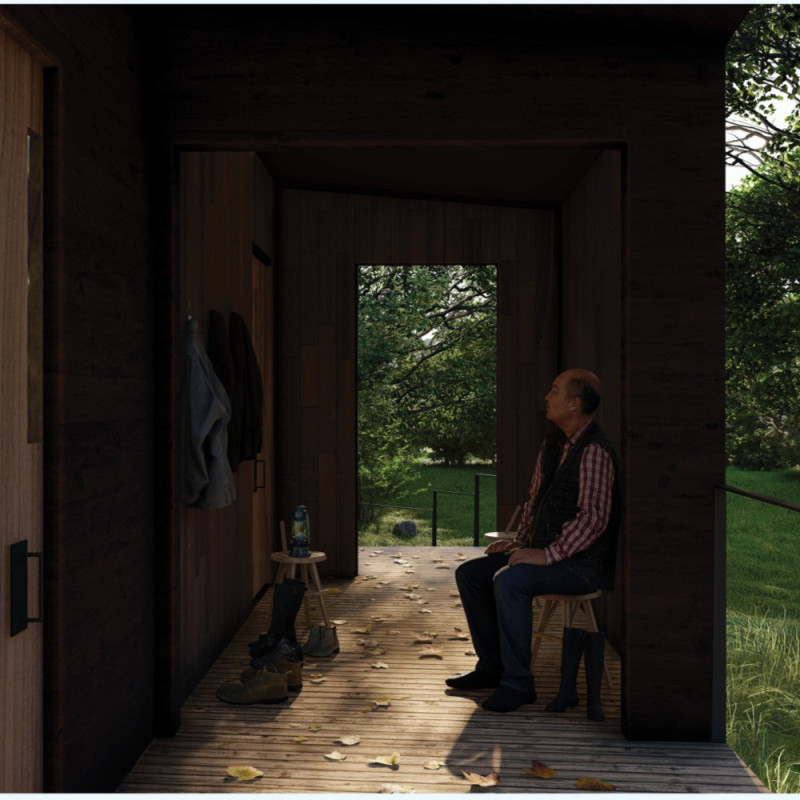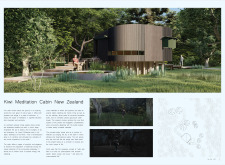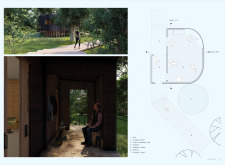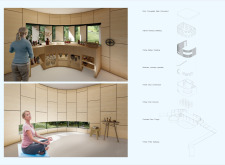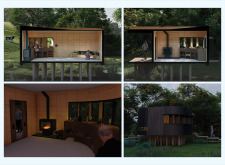5 key facts about this project
The Kiwi Meditation Cabin is located in the verdant landscape of New Zealand, creating a quiet space for meditation and reflection. Elevated above the ground, the cabin fits naturally into its surroundings, reflecting a design concept that emphasizes both physical and spiritual elevation. It serves as a refuge, encouraging users to immerse themselves in nature.
Design Concept
A key feature of the cabin is the long walkway that leads visitors toward the structure. This path allows for a gentle transition from the outside world to the serene interior, with steps that highlight the ascent. As users approach, they engage with the environment, making the journey itself a part of the meditative experience.
Material Selection
The cabin relies on local materials, primarily timber used for the exterior batten cladding and the interior lining. This choice enhances the building's connection to the rural landscape, blending it with the natural elements around. Timber is also used in the structural foundation, providing a consistent aesthetic throughout the design.
Engagement with Nature
In addition to its thoughtful design, the cabin incorporates an agricultural cattle trough, linking it further to the agrarian setting. A concrete water trough acts as a reflection point, deepening the relationship with the environment. Water collected from the roof fills this trough, serving as a reminder of life’s cycles and contributing to the overall tranquility of the space.
Philosophical Underpinnings
The design embodies the principles of wabi-sabi, a Japanese philosophy that appreciates simplicity and imperfection. This approach encourages a departure from the pursuit of material success, instead advocating for a deeper, more thoughtful lifestyle. The cabin stands as an example of this perspective, providing a calm place for personal reflection and peace.
The cabin features large windows that frame views of the surrounding trees. Natural light pours in, enhancing the interior atmosphere and promoting a strong connection between the user and the outside landscape.


